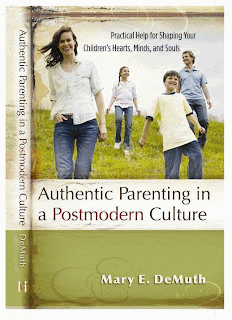
Promoting Authentic Parenting in a Postmodern Culture What does postmodern mean? And why should it matter to parents? Postmodernism is the waiting room between what used to be a modern worldview and what will be. According to several postmodern scholars, we’re in a shift right now, leaving modern ideas behind, but what we are shifting to is not yet fully defined. Postmoderns believe that rationalism and/or more education doesn’t necessarily create a better society. They typically don’t embrace the notion of absolute truth, though they reach for the transcendent. They are skeptical, and often question whether science is something to be embraced or feared. The question for parents is how will we mine the current worldview, even as it shifts? What in it can we embrace as biblical? What is not biblical? What I’ve seen in the church is a fearful adherence to what is familiar. So we cling to modern ideas, even though they may not be biblical and shun postmodern ideas even when they might be...

